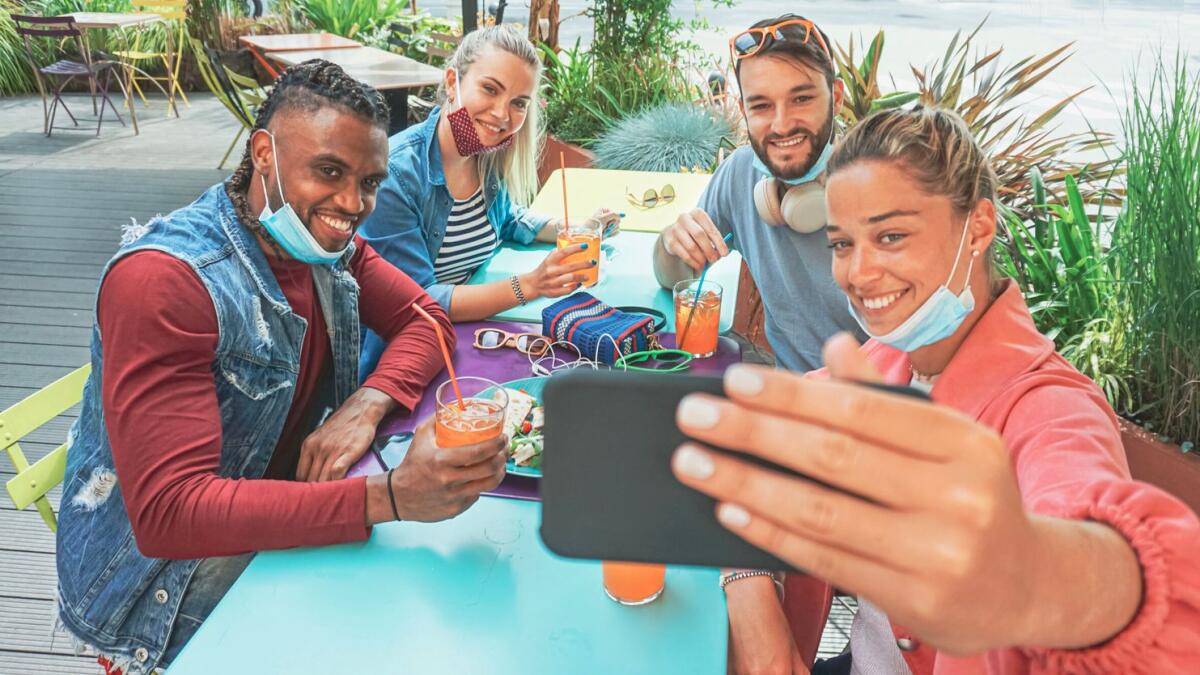Dubai Diaries: Has the pandemic made you a misanthrope?
No matter what, we will continue to draw resilience from the communications we can engage in.

Lifestyle in coronavirus time
Could the pandemic have turned us, well, a bit unsocial? “No,” said a friend recently. She went on to recount the number of parties she had been attending in the run-up to the New Year’s. She also said that all the talk of new normal was a bit exaggerated since we reclaimed the old normal in the months when the number of cases were low.
There was merit in her argument, except I didn’t want to buy it. The change I see in the extrovert in me is most evident on days when I think I ought to celebrate. Take, New Year’s Eve, for example. Ordinarily, it’s been a day to paint the town red. By that, I mean going out with friends to celebrate, heading to the beach to see the breathtaking fireworks, ordering in meals reserved for ‘special days’, and generally calling up friends and family to wish them.
I know many still do that. For the past two years, however, I have turned into an anomaly to my own self — sitting at home and treating it as yet another even when a voice in my head tells me it isn’t.
“It could be the age,” my friend suggested. If I was mildly offended, I didn’t show it. I immediately thought of my nonagenarian grandmother who I would plan our family dinners with on New Year’s Eve. And none of those gatherings were meant to be at home because, in her own words, “that would be boring”. So, age has typically never come in the way of celebrations in our household. The pandemic has.
With Covid-19 came social distancing. And as the world discovered Zoom weddings and birthday parties, I never caught on to the trend. There was a particular joy in having a person sit next to you as you talk, see their unadulterated reactions to jokes, gossip, complaints (sometimes, even WhatsApp emojis fall short of expressing what human face can).
As we got only too used to conducting our lives over Zoom, the conversations in my life became unexpectedly sanitised. Some friends who earlier had only a faint idea of boundaries were now more conscious of them. “I hope I am not bothering you”, “Sorry, did not mean to intrude”, “Oh, I don’t mean to be personal”. These remarks began to come from those I deem closest to me. The profanities had disappeared.
But people are also often responding to how you have been with them. In the past two years, many of us have built a cocoon for ourselves in the name of the pandemic. To me, this has meant fewer conversations, checking up on others a lot less often and generally telling myself that my plate is full when it’s not been vastly different for others.
I suspect many of us have gone through such mental rewiring over the past few years because the pandemic has evoked a sense of self-preservation. But self-containment cannot be self-preservation. At a time when our sense of normal is changing every day, it is the comfort of familiarity that will keep us rooted. The pandemic will continue to redraw norms of social communication, but it will help us to remember that this is also where we will draw our reserves of resilience from.

Anamika Chatterjee
Anamika Chatterjee is Associate Editor, Features at Khaleej Times. A senior journalist, she helms arts, culture, entertainment and lifestyle verticals for the print and digital platforms of the publication.





